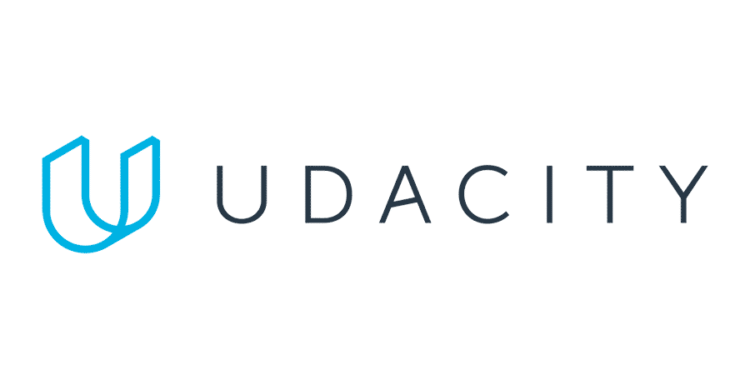What if you could gain in-demand skills from top tech companies without quitting your job? Online learning has revolutionized professional growth, and platforms like Udacity make it possible. With 1.6 million users and partnerships with Google, IBM, and Microsoft, this platform offers industry-relevant programs designed to boost your career.
Originally starting as free Stanford AI courses, Udacity now provides vocational nanodegrees. These programs focus on practical skills employers value. The recent acquisition by Accenture further expanded its LearnVantage AI training, making it a powerhouse for tech education.
This guide explores Udacity’s certifications, program benefits, and how they can shape your future. Whether you’re upskilling or switching careers, the right online learning path can open doors.
Key Takeaways
- Udacitypartners with top tech firms like Google and IBM.
- Vocational nanodegrees focus on job-ready skills.
- Accenture’s acquisition enhances AI training options.
- Flexible online learning fits busy schedules.
- Programs cater to career changers and professionals.
What Is Udacity? A Pioneer in Online Education
A Stanford professor’s experiment changed online education forever. In 2011, Sebastian Thrun’s free introduction artificial intelligence course attracted 160,000 students worldwide. This unexpected success sparked the creation of a groundbreaking company.
The Founding Vision and Early Growth
Thrun, a former Google engineer, invested $200k to launch the platform. By 2012, Andreessen Horowitz added $15M in funding. The company saw 90,000 enrollments in just six months.
Early courses mirrored traditional higher education. But feedback revealed a demand for job-ready skills. This insight led to a strategic shift in 2013.
Udacity’s Shift to Vocational Training
The focus moved to vocational “nanodegrees”—short, skill-focused programs. Partnerships like Georgia Tech’s $7K online CS master’s degree cemented its role in higher education.
Today, the platform offers 78 nanodegrees. Fields like introduction artificial intelligence and data science dominate. This pivot ensured learners gain what employers value most.
Exploring Udacity’s Course Offerings and Nanodegree Programs
From AI to cloud computing, specialized courses bridge the gap between learning and employment. The platform’s 78 nanodegrees span nine schools, including computer science, cybersecurity, and blockchain. Each program focuses on skills employers prioritize, with projects mimicking real workplace challenges.
Key Nanodegree Tracks: AI, Data Science, and More
The Self-Driving Car Engineer nanodegree includes five projects, like simulating asteroid tracking. Other tracks, such as AI for Healthcare, partner with industry leaders like Nvidia for GPU training. These programs are structured around mentor-led feedback loops.
Free Courses vs. Paid Subscriptions
Free courses cover Python and machine learning but omit certificates. Paid plans start at $249/month, with discounts for quarterly commitments. Annual subscriptions ($2,390) save 20% over monthly payments.
Hands-On Projects and Industry Partnerships
Learners build AR apps with Unity or deploy cloud labs via AWS. Collaborations with companies like IBM ensure projects align with current tech demands. This approach turns theoretical knowledge into job-ready skills.
Udacity Certifications: Boosting Your Professional Credibility
Employers value proof of skills—completion certificates provide just that. Unlike generic PDFs, modern credentials include identity verification and project portfolios. This shift reflects the demand for tangible proof of expertise.
How Nanodegree Certificates Stand Out
The nanodegree program structure ensures rigor. Pearson VUE proctored exams ($89) validate knowledge, while GitHub integration showcases projects. AT&T’s 2014 internship guarantee for graduates set a precedent for corporate trust.
Udacityclaims a 75% hiring rate for nanodegree holders. Compared to Coursera, its certificates often rank higher in tech sectors. Real-world projects, like building AR apps, make portfolios stand out.
Transfer Credits and Employer Recognition
Colorado State Global Campus accepts CS101 for credit. SJSU’s 2013 pilot allowed three transferable credits per certification. Such pathways bridge gaps between online learning and traditional degrees.
Employer recognition extends beyond credits. Partnerships with IBM and Nvidia align curricula with industry needs. For career changers, these endorsements can fast-track interviews.
How Udacity Can Accelerate Your Career in Tech
Breaking into tech doesn’t require a four-year degree—just the right skills. With 21 million learners globally, this platform turns students into job-ready candidates through hands-on training and industry partnerships.

Success Stories and Job Placement Support
A former retail worker landed an IBM cloud engineer role in six months. Programs like Voyage Auto’s self-driving car course hired 13% of engineers from Udacity.
Career services include 24/7 mentor access and LinkedIn optimization. Hiring partners like Accenture and Cisco streamline recruitment for top job seekers.
Building a Portfolio with Real-World Projects
Learners deploy machine learning models or publish iOS apps—projects that fill portfolio gaps. Nanodegree graduates report a 34% average salary increase.
AI interview prep simulations refine job search skills. For tech aspirants, practical experience outweighs theory.
Udacity’s Acquisition by Accenture: What It Means for Learners
Corporate learning just got a major upgrade with Accenture’s strategic move. The acquisition creates a powerhouse combining vocational tech education with enterprise-scale training solutions. This shift particularly benefits clients seeking workforce upskilling at competitive rates.
Expanding Access Through LearnVantage
Accenture’s $3B investment brings 230+ new trainers to the platform. The March 2024 rollout includes multilingual courses in Arabic, Korean, and Spanish. Fortune 500 companies now access SCORM-compliant LMS integrations for seamless team training.
Key enterprise benefits include:
- 40% cost reduction forecast for bulk corporate plans
- AI-driven content personalization for diverse learner groups
- Modular course designs that slash development time by 60%
Future of AI-Powered Learning
The 2025 roadmap introduces ChatGPT-4 for instant code reviews. AI tutors will analyze project submissions with human-level precision. This aligns with Accenture’s vision for adaptive, skills-based credentialing.
Since March 2024, enrollment in data science programs grew 28%. The merger positions LearnVantage as the go-to solution for clients needing scalable AI training infrastructure.
Alternatives to Udacity for Online Tech Education
Tech learners have multiple options beyond a single platform for skill development. Each alternative caters to different budgets, learning styles, and career goals. Let’s compare top contenders like Coursera, Udemy, and Treehouse.

Comparing Coursera, Udemy, and Treehouse
Coursera offers 35% lower costs than Udacity but focuses less on hands-on coding. Its Google-certified programs appeal to corporate learners. However, projects lack the depth of nanodegrees.
Udemy boasts 130,000 courses but doesn’t provide accredited certifications. It’s ideal for quick skill updates rather than career transitions. Prices start at $12.99 per course during sales.
Treehouse charges $199/month for its Techdegree, featuring live workshops. It’s stronger in front-end development but lags in AI/ML compared to Udacity.
Choosing the Right Platform for Your Goals
Prioritize certification? Coursera’s IBM or Google credentials hold weight. Need affordability? Udemy’s sales make learning accessible. For interactive coding, Treehouse shines.
Corporate teams prefer Udacity or Pluralsight for analytics dashboards. Career changers benefit from Udacity’s project-heavy approach. Match the platform to your stage and budget.
Conclusion
Tech careers thrive on practical skills, and project-based learning delivers results. The platform’s hands-on approach sets it apart, with real-world projects that impress employers.
Accenture’s backing expands access to corporate training networks. This partnership boosts credibility for learners seeking high-demand roles.
Try the 7-day free trial to experience the curriculum firsthand. Future updates include AI-powered tutors launching in late 2024.
For best results, pair technical skills with soft skills training. This combination maximizes career growth in today’s competitive market.
Online learning evolves fast—staying ahead means choosing programs that align with industry needs.
FAQ
What makes Udacity different from other online learning platforms?
Udacity focuses on vocational training with industry-relevant nanodegree programs. These include hands-on projects and partnerships with top tech companies, ensuring practical skills for career growth.
Are Udacity’s nanodegree programs worth the investment?
Yes. Nanodegrees provide job-ready skills, mentorship, and portfolio projects. Many graduates secure roles at leading firms, making the programs a strong career accelerator.
Does Udacity offer free courses?
Yes. The platform provides free introductory courses in tech and business. However, full nanodegree programs require a paid subscription for certification and advanced content.
How do Udacity’s certificates compare to traditional degrees?
Nanodegree certificates focus on practical skills, often recognized by employers like Google and IBM. While not equivalent to degrees, they boost credibility in tech fields.
What happens to Udacity after its acquisition by Accenture?
Accenture’s LearnVantage initiative will expand access to AI and tech training. Expect enhanced AI-powered learning tools and broader course offerings.
Can Udacity help me switch careers into tech?
Absolutely. Programs include career services like resume reviews and interview prep. Real-world projects build portfolios that impress hiring managers.


